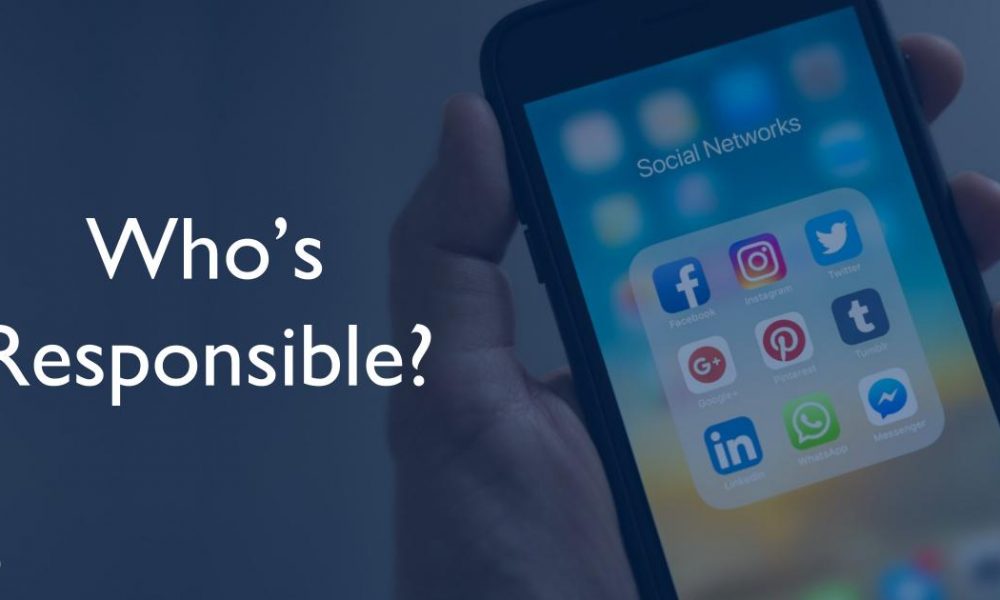Rarely a day goes by without someone calling out prominent people posting disinformation — misleading statements, half-truths, outright lies — on social media sites like Facebook, YouTube, and Twitter. And it matters because Americans use social media a lot.
Over 8 in 10 (83%) Americans over the age of 12 have at least one social media account and adults are currently spending about 123 minutes per day in them (according to data from Backlinko). So, with all the disinformation filling social media, one question pollsters have been asking is: Who is responsible for policing social media sites? The platforms or those who post?
In a 2016 McClatchy-Marist Poll, 53% of Americans believed that Facebook and Twitter are “free marketplaces” and users are responsible for determining the truth in what they read. 41% thought the platforms had a responsibility to stop the sharing of information that is identified as false.
This is a topic that, at that time, both Democrats and Republicans agreed on…to an extent. 52% of Republicans and 49% of Democrats thought users were responsible — a narrow 3-point difference.
Fast forward to 2020, and opinions have dramatically changed — and become more politically polarized.
In an August 2020 Pew Research survey, three in four Americans (75%) said technology companies had a responsibility to prevent misuse of their platforms to influence the 2020 presidential election.
While not the same question as the one we asked in 2016, it hints at a significant shift in public opinion with regard to how much social media platforms should be responsible for the content they host.
What’s really striking, though, is the partisan divide in the Pew study. While 85% of Democrats said the tech companies should do something about the misuse of their platforms to influence an election, 64% of Republicans felt the same. A 21-point gap — much larger than in the 2016 poll — albeit on a different question.
Still, no matter who Americans believe should deal with social media misuse, a large majority agree it exists.
In an NPR/PBS NewsHour/Marist Poll conducted earlier in 2020, 82% of Americans thought it likely that they would encounter misleading information on social media sites.
So, with a majority of Americans expecting misleading information and a majority thinking social media companies themselves should take at least some responsibility for the problem, it may be one of the few bipartisan issues the new Congress will deal with in 2021.
This post was written by Marist Poll “College 2 Career” intern Thomas Muratore.

